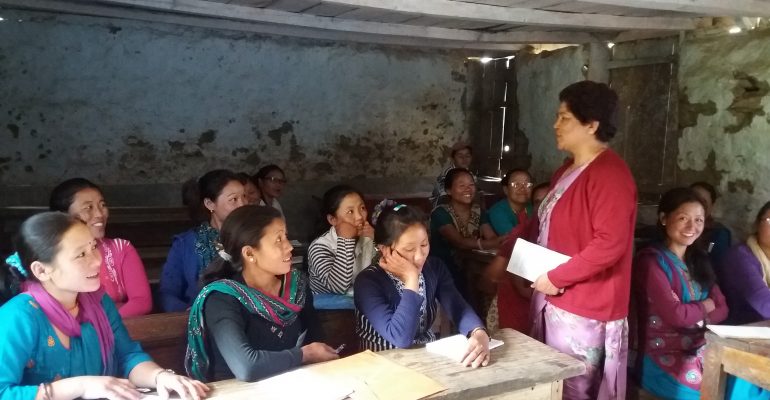The Australian Himalayan Foundation’s, (AHF) Women and Girls Education Project (WGEP) in the remote disadvantaged region of the Lower SoluKhumbu region of Nepal, supported by the Soroptimist International President’s Appeal, was set up to provide educational opportunities for women and girls to help them rebuild their lives following the devastating earthquakes in Nepal in 2015. WGEP encompasses both a leadership and gender training programme for female teachers across this region, as part of the AHF’s existing Teacher Training & Quality Education (TTQE) programme and the funding of vocational skills training scholarships.
This project complements the existing AHF’s TTQE programme in Nepal; providing a leadership and gender training programme for female teachers across the lower SoluKhumbu; as well as providing vocational opportunities for young women and girls to receive training in an employable trade. The aim is to increase female access to educational resources and opportunities; increase female workplace participation in remote, rural areas; improve the economic independence of women and girls in remote, rural areas and increase leadership opportunities for women and girls within the community.
During the first year, with the generous support of funding from the Soroptimist International President’s Appeal, the project has reached and exceeded its original aims.
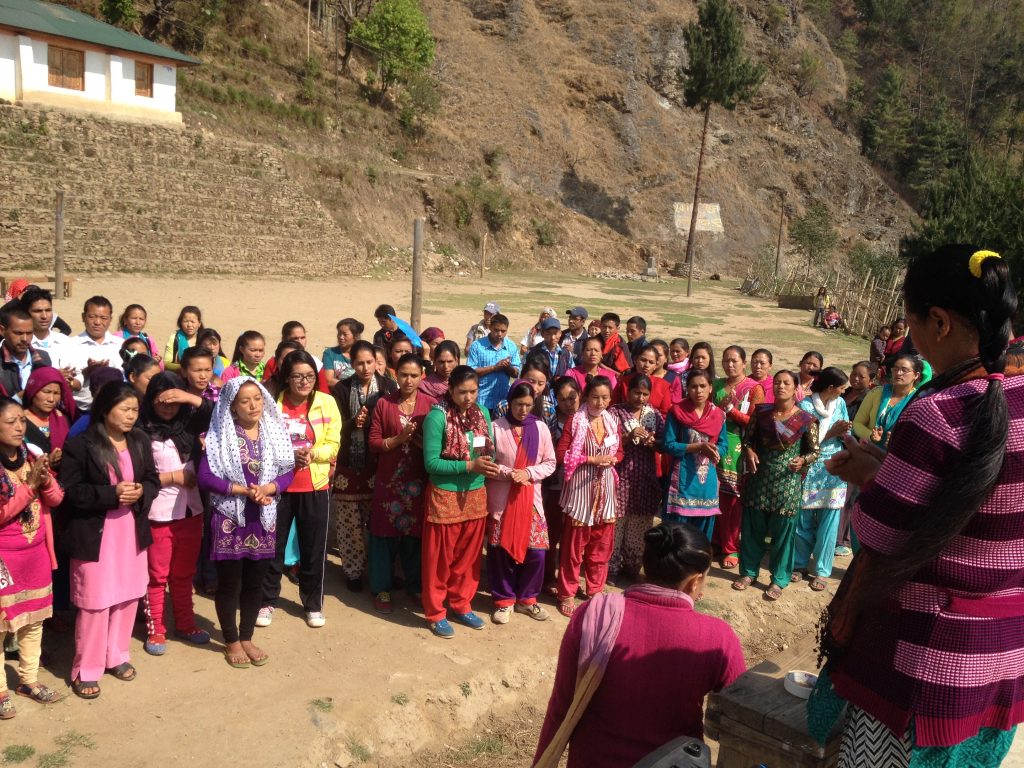
Image courtesy of AHF: Male and female teachers in joint participation to promote gender issues
The WGEP pilot project commenced in March 2016 with a Gender and Social Inclusion Training workshop for 35 Head Office staff from AHF’s in country partner, the Rural Education and Environment Development Center (REED Nepal). The group included many of REED’s Teacher Trainers, as well as the Chairman and other senior management staff. A series of 3 three-day workshops on gender sensitization training were then organised by REED in April and May 2016, and attended by 116 female teachers in the Sotang and Nele regions of the Lower Solukhumbu.
The purpose of the training was to improve the knowledge and understanding of gender equality issues in the schools of those teachers attending the course, in areas such as women’s role in society, the status of women in Nepal, gender equality and adolescent education, and reducing gender discrimination in the classroom. This training was planned in close coordination with the local District Education Office (DEO) and was based on the assessed needs of the female teachers attending.
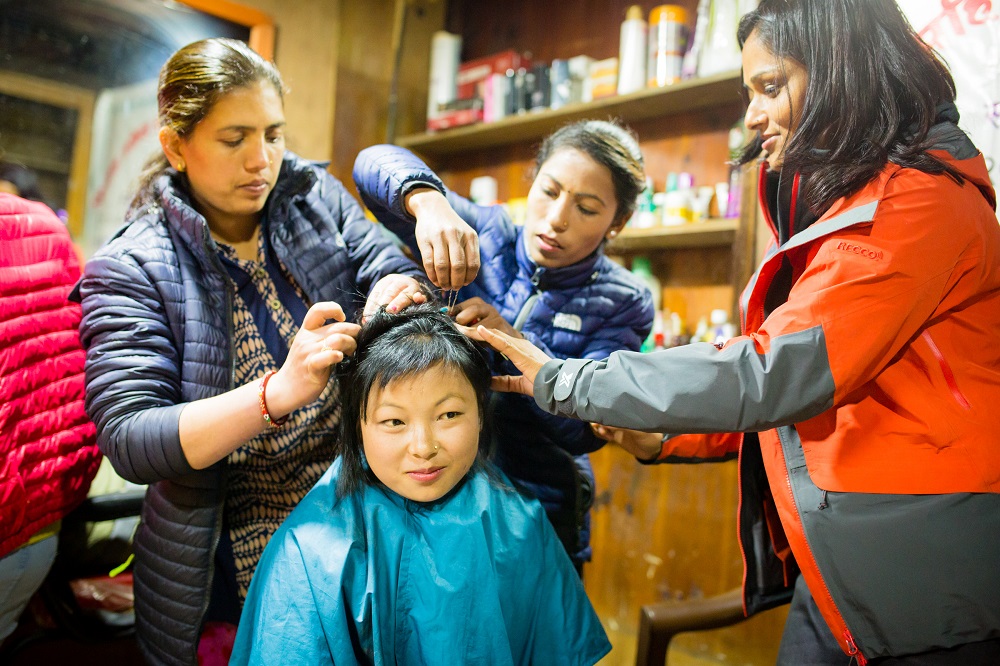
Girls taking the beautician courses
Following a needs assessment conducted by REED in early 2016, 14 girls were identified to be the recipients of the 3-month vocational training scholarships and these were launched in August 2016. The girls chosen for these scholarships were, for the most part, those who had dropped out of high school and were therefore some of the most vulnerable in their communities. This training provided skills in practical trades that would enable the girls to find work in their communities, and help them support themselves and their families.
Of the fourteen scholarships provided, 10 chose to study sewing and tailoring, whilst 4 chose to study beautician courses. With a central role in the decision-making, these courses were chosen by the women and girls, based on a realistic view of what employment might be available to them, and the type of business they might be able to establish within their own villages. The tailoring trainees learnt how to repair and produce garments, learning skills in cutting and measurement, the use of hand tools and sewing machines and garment stitching. The beautician course trained participants in all services offered in a village beauty parlour – including waxing and threading, bridal makeup, bleaching, nail art and more. Both courses were suited to beginners and those at intermediate level, with the aim of training participants to become self-reliant in setting up their own production/servicing businesses in their village.
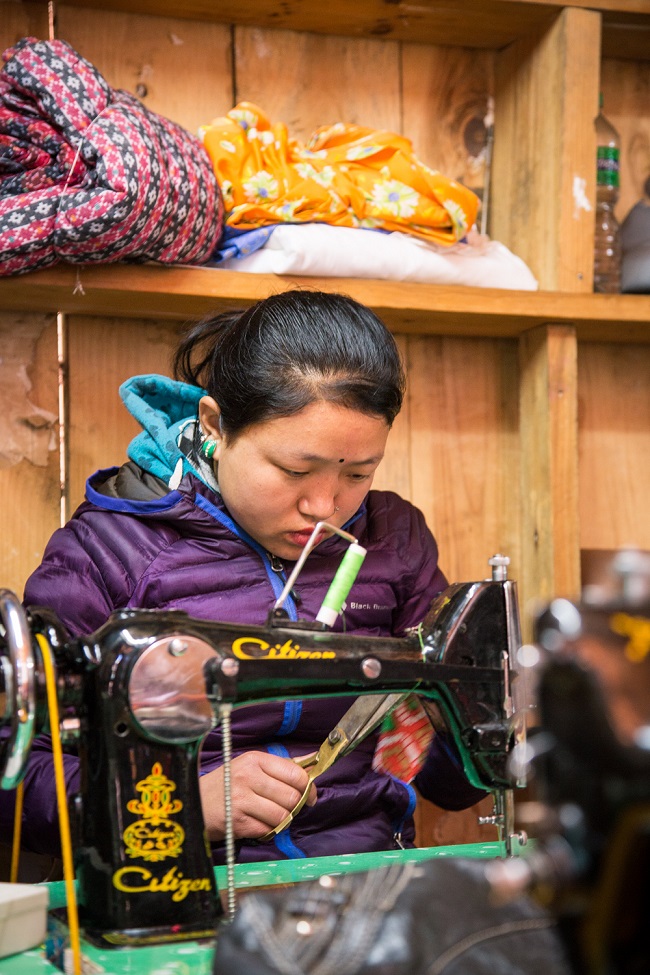
A young woman learning sewing and tailoring skills to increase opportunities for work and empowerment
All the fourteen women and young girls chosen for the vocational training scholarships completed the courses in December 2016. Two community based beauty parlours and five sewing centres have since been set up in local communities across the Lower SoluKhumbu and several girls plan to take advanced training in tailoring to expand their income generation opportunities.
- A sewing centre was established with 5 trainees
- Beauty parlour established with 4 trainees
- 35 REED staff received training
- 14 participants received vocational training and 116 teachers were trained
- 64% of trainees have already gone on to use their training to create an income
The Gender and Social Inclusion Training workshops provided the 116 women who participated, with an open environment to discuss the issues of gender parity and gender equality and inequality in schools, through a series of panel discussions, individual counselling, and group work. The teachers who attended could identify issues within their own school environments and discuss amongst their female peers, ways in which to reduce gender discrimination in classrooms.
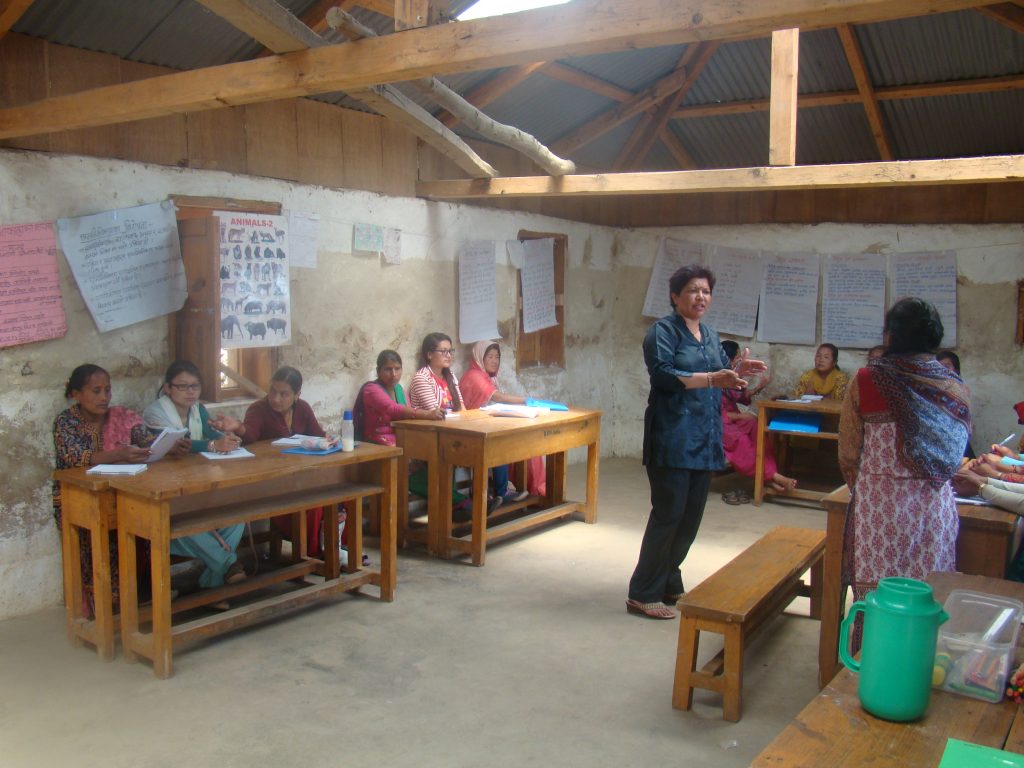
Gender and social inclusion training
The training sessions had active participation by the female teachers’ present and a recorded sense of empowerment to take the learnings from the workshops back into the classroom. The leadership training has encouraged women to become more independent and provided them with skills to take up leadership roles within their communities, so that their voices can be heard. REED has reported that following the workshops, there has been an increase in local women’s groups participating in school monitoring, supervision and evaluation.
The vocational training scholarships have been a great success with all 14 women and girls completing their courses. Several of the trainees have worked together to establish their own businesses in their local communities and others intend to go onto further training. These scholarships have helped to alleviate poverty; enabled the economic independence of several of the trainees; and have helped to increase the self-esteem of the women and girls on the programme, as they had an important role to play in the decision-making of the courses chosen.
Carolyn Hamer-Smith, CEO of Australian Himalayan Foundation says: “We are incredibly grateful for the support we have received from Soroptimist International which has enabled us to help women and girls from the Lower Solukhumbu to get back on their feet after the devastating earthquakes in Nepal in 2015. The Women and Girls Education Project (WGEP), which we were able to set up with the funding from Soroptimist International, has enabled us to empower women and girls from remote communities across the region to realise their full potential through education and training.”
Chair of President’s Appeal 2015-2017, Sharon Fisher says: “As our first project reaches completion, it is wonderful to hear the results for Educate to Lead: Nepal. It proves once again how a lift up, through education and empowerment, is just what is needed to create change in the lives of women and girls. Thank you to Australian Himalayan Foundation and REED Nepal for the excellent outcomes! “
All images courtesy of AHF and REED Nepal

